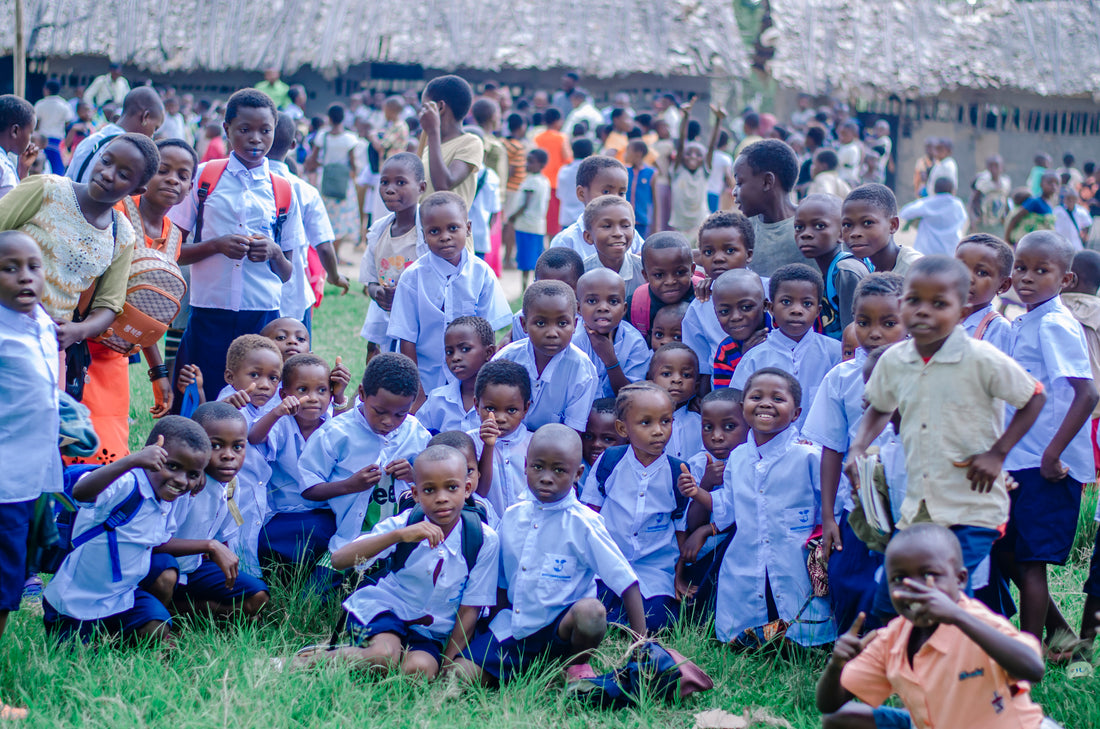Table of Contents
- Understanding Global Education
- Why Does Global Education Matter in the 21st Century?
- Bridging the Global Education Gap
- Brothers4Change: Putting an End to the Global Education Gap
- Conclusion
In today's interconnected world, the positive impact of global education cannot be overstated. It's a key to understanding the world, addressing pressing global challenges and creating opportunities for a brighter future. The global education gap, however, remains a significant challenge, with millions of children worldwide still lacking access to quality education. In this article, we'll explore the importance of global education and the factors contributing to this gap, focusing on simplicity and readability.
Understanding Global Education
Global education, as an approach and a network of educational institutions, plays a role in shaping students' perspectives. It encourages them to appreciate the world, recognize their role in a larger system, and engage with diverse cultures and disciplines. This approach transforms learning into an active and engaging experience.
For instance, a simple economics class can become fascinating through a global lens. Students might be tasked with discovering the origins of their favorite coffee beans, only to realize that their daily brew comes from places like Brazil. This discovery can spark an interest in exploring Brazil's culture, politics, or tourist destinations. It opens doors to learning about other top coffee-producing countries, such as Colombia and Ethiopia.
Likewise, students in different parts of the world can engage in similar journeys of exploration, fostering a deeper understanding of global interconnections. The goal is to nurture active global citizens who can address pressing social issues like inequality, poverty, and human rights violations.

Why Does Global Education Matter in the 21st Century?
In the 21st Century, the importance of global education has never been more evident. The world faces shared challenges, including the COVID-19 pandemic and climate change. Higher education institutions are pivotal in preparing students with a global mindset, ensuring accessible education, and nurturing the skills needed to thrive in an ever-changing world.
As Nelson Mandela once stated, "Education is the most powerful weapon you can use to change the world." Education not only enhances individual opportunities but also contributes to global betterment. The United Nations' Sustainable Development Goals emphasize the role of education in escaping poverty and protecting the planet.
Bridging the Global Education Gap
The global education gap is a complex issue with various contributing factors. These factors vary by region and country, but some common themes can be identified. Here are several key factors contributing to the global education gap:
1. Marginalization and Poverty
One of the primary reasons millions of children lack access to education is persistent inequality and marginalization. Children from disadvantaged backgrounds often find themselves on the fringes of the education system, missing out on vital learning experiences. Factors like unemployment, illness, and parental illiteracy multiply the risk of non-schooling.
2. Financial Deficits in Developing Countries
Universal primary education remains a significant challenge for many states, especially in emerging countries. The financial resources required to establish schools, provide materials, and train teachers are often lacking. International aid falls short of enabling these countries to build comprehensive education systems.
The shortage of funds also affects the quality of teaching, leading to oversized classes where students of varying abilities are grouped, hindering tailored education.

3. The Global Education Gap's Regional Impact
The global education gap is not evenly distributed worldwide. Sub-Saharan Africa is one of the most affected places, with over 244 million children not receiving primary education as per reports of UNESCO. Central and Eastern Asia, along with the Pacific, also face significant challenges in this regard.
A concerning aspect is the prevalence of educational poverty, where children receive less than four years of education, and extreme educational poverty, with less than two years of schooling. Sub-Saharan Africa exhibits high rates of educational poverty, impeding social and economic development.
4. Addressing Gender Inequality
Girls face a disproportionate lack of access to education. According to UNICEF, 129 million girls worldwide don't have access to primary education. Cultural and traditional biases in various regions, such as the Arab States, Central Asia, and Southern and Western Asia, often favor boys over girls in terms of education.
In certain countries like Afghanistan and Somalia, little effort is made to reduce the gender gap in education. Even though progress has been made in reducing gender inequality in education, significant work remains to achieve universal primary education.
Brothers4Change: Putting An End To The Global Education Gap
Brothers4Change is a dedicated organization on a mission to make a lasting impact on education in developing countries. With the belief that education is a potent catalyst for change, Brothers4Change has committed to its Empowerment Program, which aims to enhance learning opportunities and create a brighter future for needy students. Here's how their initiatives are transforming lives and breaking down barriers in the pursuit of education.
1. A Commitment to Change
At the heart of Brothers4Change lies a deep commitment to empowering individuals through education. They have undertaken the remarkable pledge to contribute 10% of the profit from every purchase to their Empowerment Program. This demonstrates a tangible dedication to ensuring that education is not a distant dream but a reality for children in developing nations.
2. Essential Goods That Transform Lives
One of the primary ways Brothers4Change is making a difference is by providing essential goods that have a direct and positive impact on the lives of students. Solar LED lamps are a prime example, extending learning hours well into the evening. These lamps not only allow children to acquire new skills but also enhance their safety by providing illumination after sunset.
Access to clean drinking water is another critical aspect of a student's well-being. Brothers4Change supplies water filters, ensuring that students have a continuous source of safe drinking water, thus safeguarding their health and enabling them to concentrate on their studies.
Recognizing the holistic importance of sports in a child's development, Brothers4Change goes a step further. By providing sports equipment, they promote health, gender equality, social integration, and various life skills. These initiatives contribute to a well-rounded educational experience, fostering personal growth and community cohesion.

3. Overcoming Financial Barriers
In many developing countries, the cost of school uniforms can be a significant barrier to education. Brothers4Change understands this obstacle and has taken action to alleviate the burden. By including school uniforms as part of their Empowerment Program, they remove one of the key financial barriers parents face. This support makes it easier for families to send their children to school, ultimately breaking down financial hurdles and opening doors to brighter futures.
4. A Collective Effort
Brothers4Change's impact is not the result of individual efforts but a collective one. It's a testament to what can be achieved when people come together with a common goal of empowering students through education. By contributing to their program, individuals are actively participating in transforming lives and creating opportunities for students to reach their full potential.
Conclusion
In the 21st century, global education is a beacon of hope, offering a pathway to understanding, addressing global challenges, and creating brighter futures. Closing the global education gap is crucial to ensuring all children can access quality education. This not only empowers individuals but also has a positive impact on the world as a whole, helping us build a more equitable, sustainable, and harmonious global society.

